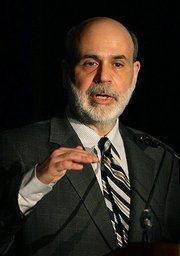Northern Command will stand up new units to respond to chemical, biological, radiological, nuclear or high-yield explosive – CBRNE – attacks.
Currently, if such an attack proved more than local emergency crews could handle, governors could call in National Guard Weapons of Mass Destruction Civil Support Teams.
And if more help were needed, one of 17 regional Guard CBRNE Enhanced Response Force Packages would come in.
Beginning in October, a federal military response will be available for the worst disasters: the CBRNE Consequence Management Response Force, or CCMRF (pronounced “sea-smurf”).
Three CCMRFs, each with about 4,500 troops from all branches, are in the making.
Each CCMRF will tap units that provide the capabilities most often called for in a CBRNE response, including airlift, medical, logistics and units specializing in biological or radiological identification and cleanup. Army Lt. Col. Rob Cunniff, head of NorthCom’s Future Operations, said CCMRFs are intended to provide “a flexible force” that can provide its various capabilities piecemeal or as a total force.
“This is a no-fail mission,” Cunniff said.
“There is high expectation in the public eye that if something happens, there needs to be a [Defense Department] response, and it needs to be quick.”
The forces will be made up of whatever units NorthCom identifies as having the capabilities needed to respond to CBRNE incidents. NorthCom “has no preference based on service or component,” Cunniff said.
That means service members interested in the homeland CBRNE mission can’t volunteer for CCMRF duty, but they can increase their likelihood of participation by joining a unit with CBRNE focus, such as the Air Force’s radiological assessment teams.
Cunniff did say that CCMRFs 2 and 3 will be composed mostly of Guard units.
And that could create some slight bureaucratic entanglement: If, for instance, a Texas Guardsman was part of an initial response to a chemical weapon attack in Dallas, he could be redirected if he also were part of a CCMRF called in later on the same attack.
He might still be doing the same task but be switched to federal status.
Training begins
Some units already tagged for CCMRF 1 – the team expected to be ready by October – trained as part of National Level Exercise 2-08, which involved a variety of local, state and federal disaster response agencies.
Read moreMartial Law: New response teams for chem, nuke attacks









